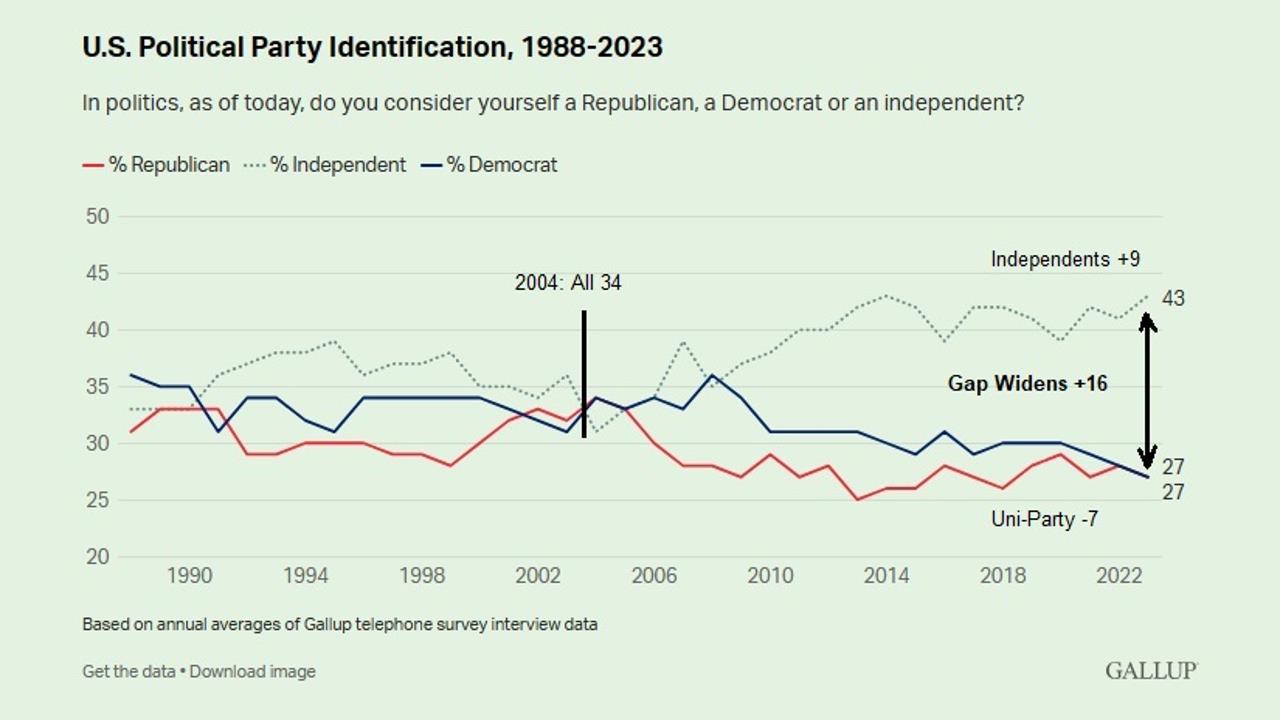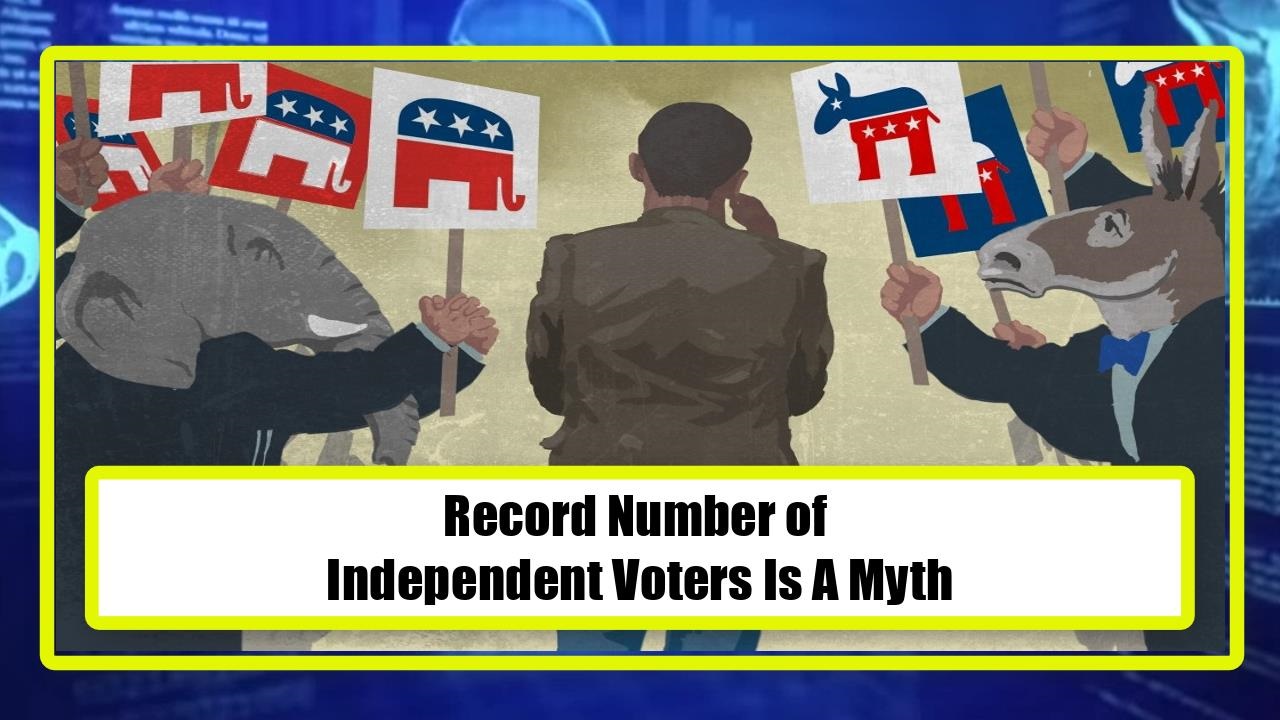Video:
Take our online poll:
AI Analysis:
Independent voters in the United States do not affiliate with any specific political party, and their profile can be diverse. It's important to note that independents are not a monolithic group, and their characteristics can vary widely. Here are some general traits that may describe certain independent voters:
1) Diverse Political Views: Independent voters can have a range of political beliefs and values. Some may be moderate or centrist, while others may hold more liberal or conservative views. Independents often resist strict ideological labels.
2) Pragmatic Approach: Many independent voters may take a pragmatic approach to politics, focusing on specific issues rather than strictly aligning with a party platform. They may prioritize solutions and policies over party loyalty.
3) Open-Mindedness: Independents may be more open-minded and willing to consider candidates from various parties. They may be less inclined to adhere strictly to party lines and more likely to evaluate individual candidates based on their qualifications and positions.
4) Disillusionment with Partisanship: Some independent voters may feel disillusioned with the polarization and partisanship in American politics. They may be critical of the two-party system and seek alternatives that better represent their values.
5) Younger Demographic: Independent voters often include a significant portion of younger individuals. Millennials and members of Generation Z, in particular, may be more likely to identify as independents, reflecting a desire for a departure from traditional party politics.
6) Educated and Informed: Independent voters may be well-educated and informed about political issues. They may engage in critical thinking, independent research, and be less swayed by party rhetoric.
7) Flexible Voting Patterns: Independents may not consistently vote for a particular party in elections. Their voting patterns can be more flexible, influenced by the candidates' positions, policies, and the political climate at the time.
8) Cultural and Social Diversity: Independents come from diverse backgrounds, cultures, and social demographics. They may not fit neatly into demographic stereotypes and can be found across various ethnicities, socioeconomic statuses, and regions.
9) Increased Skepticism: Independent voters may be more skeptical of traditional political institutions and may be less likely to trust political parties. They may seek alternative voices and information sources.
10) Growth in Numbers: The percentage of independent voters in the U.S. has been growing in recent years. More individuals are choosing to register as independents, contributing to a more dynamic and diverse political landscape.
It's important to recognize that these characteristics are generalizations, and individual independent voters may not fit all or any of these descriptions. The diversity within the independent voter category underscores the complexity of political preferences and the evolving nature of American political identities.
Chart:

References:
Fear of Disclosing Party Affiliation


Comments